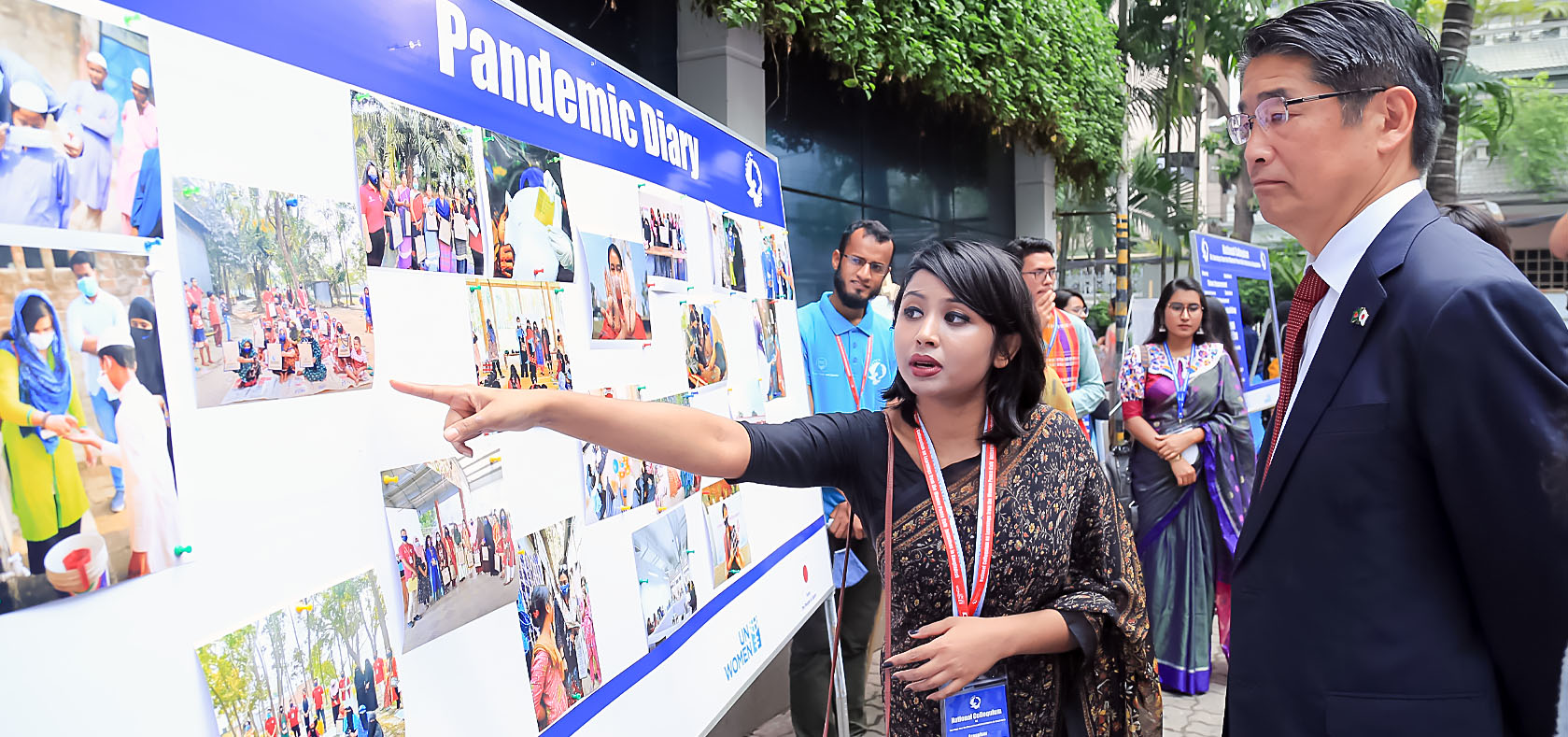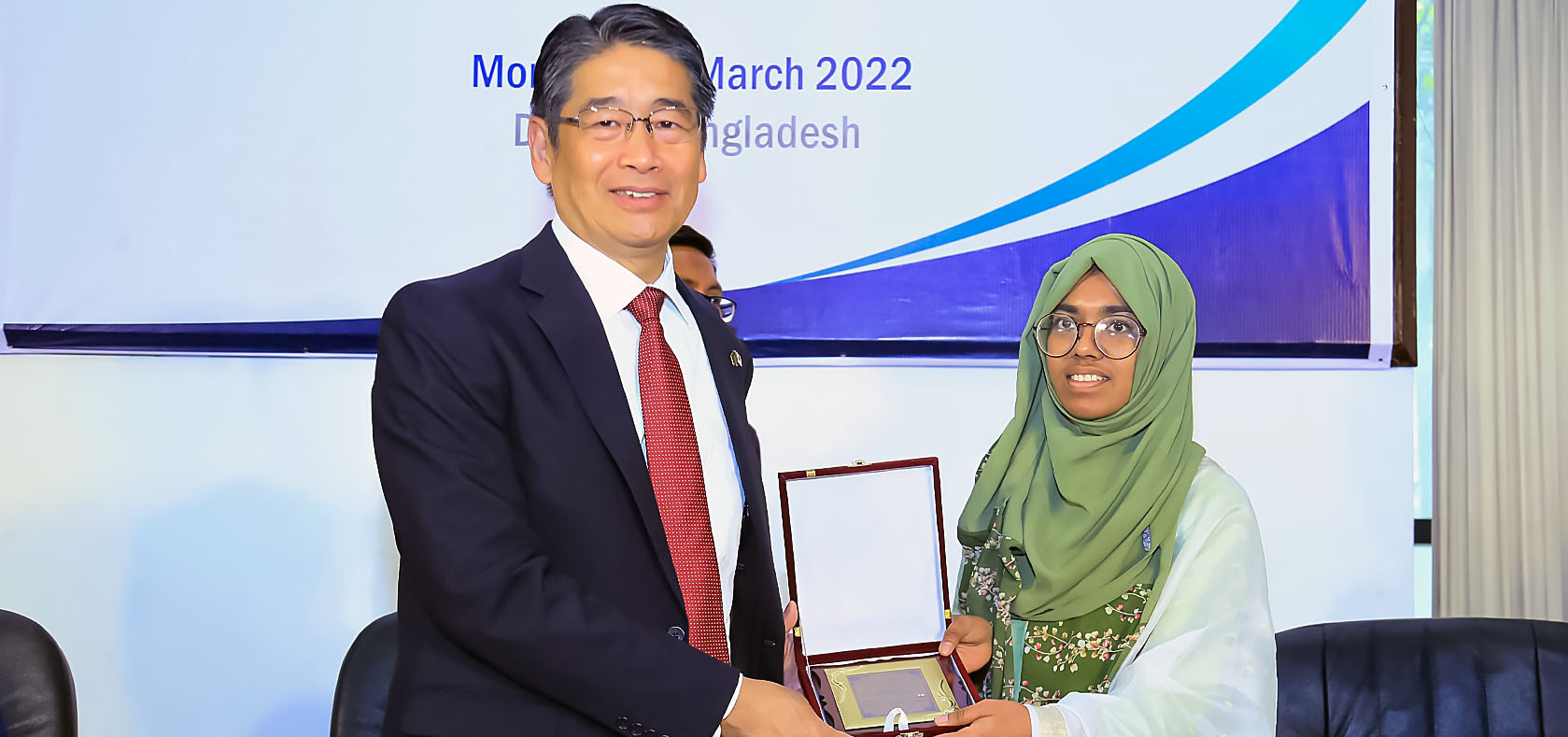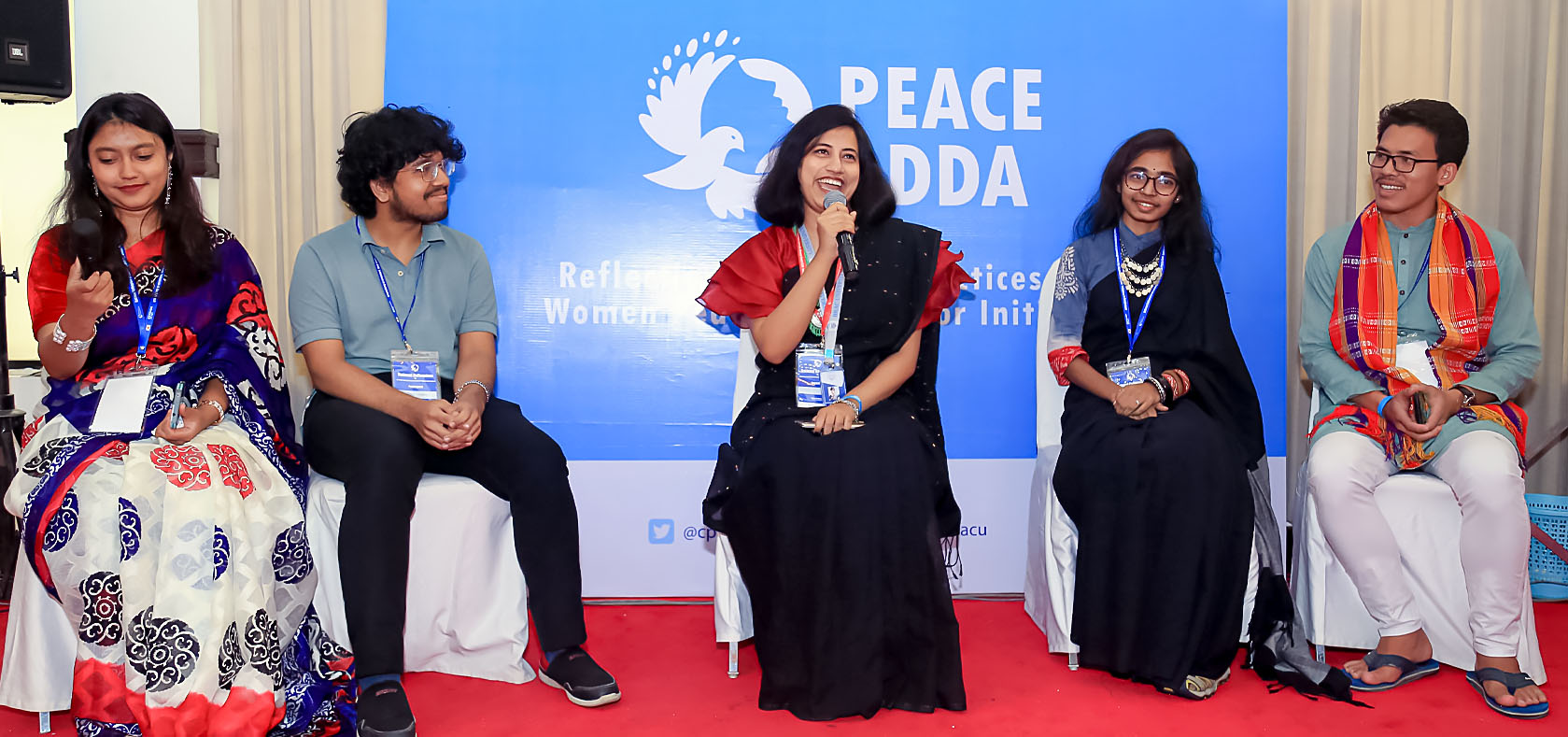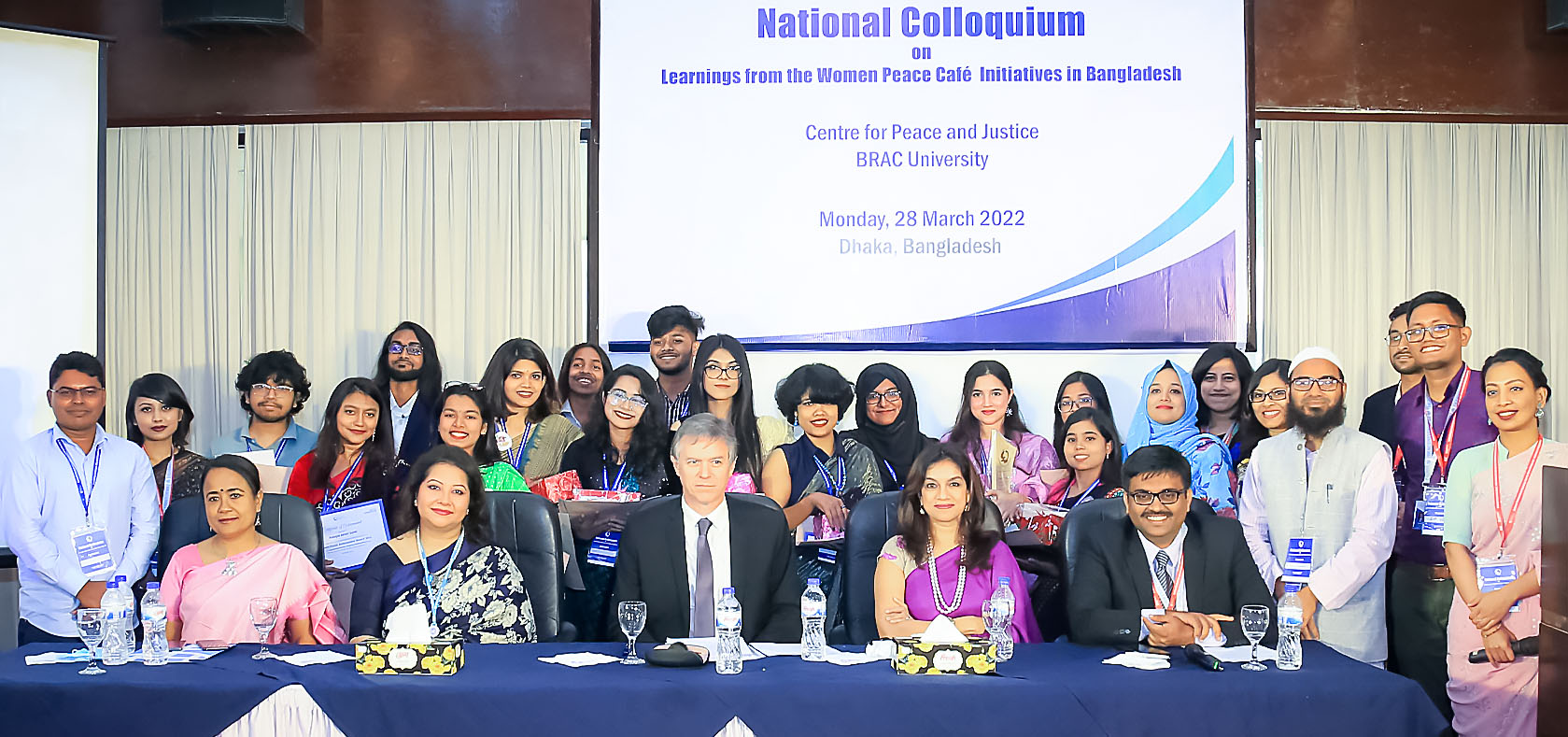National Colloquium on Learnings from the Women Peace Café Initiative in Bangladesh
Date:
Author: Tania Sharmin

Young women are agents of change in promoting peace and social cohesion, said speakers at the National Colloquium on Learnings from the Women Peace Café initiative in Bangladesh. The event, organized by UN Women and the Centre for Peace and Justice (CPJ) of Brac University on March 28, showcased the journey of the Women Peace Café (WPC), a university-based platform for young female students that facilitates knowledge exchange and innovative social entrepreneurship to promote peacebuilding within vulnerable communities.
“I was very impressed by young female leaders from respective universities from Rangpur, Mymensingh and Dhaka, who empowered vulnerable communities at a grassroots level in partnership with CPJ, Brac University and UN Women,” said Ito Naoki, Ambassador of Japan, attending as guest of honour. The change will not take place in one day; however, they are the leaders who will change their communities. I hope that young leaders will continue each initiative even after their graduation towards achieving peaceful and cohesive society.”

The event featured a colourful showcase of innovative entrepreneurship projects by selected WPC members under the Women Peace Ambassador initiative.
Brac Vice-Chancellor Vincent Change highlighted the importance of a more student-centred education and added that the WPCs are an example of successful extra-curricular student activities and learning.
The partnership has seen four WPCs established in public and national universities, and trained students on social entrepreneurship, peace-building and social cohesion,” said Diya Nanda, deputy country representative of UN Women Bangladesh. “The key takeaway now is to ensure the continuation and sustainability of this model,” she said.

WPC members held a peace adda, an informal dialogue, titled ”Experience of Women Peace Ambassador Initiative and its Practice. The speakers shared their experiences of working as Women Peace Ambassadors, including male allies of the WPCs, as well as of challenges and their future vision for building a peaceful Bangladesh. As a core part of the WPC platform, 106 Women Peace Ambassadors were selected for innovative social entrepreneurship. They engaged 290 volunteers that further benefited 580 community women across 30 districts. Fifteen Women Peace Ambassadors received awards for their extraordinary contributions at the event, which had 120 attendees and included WPC members, university students, UN agencies, academics and development partners, among them representatives from the Embassies of Japan and The Netherlands.

The WPC has been established as a replicable model for empowering young women through civic engagement to build and sustain peace. Currently, there are four WPCs, at Brac University, the University of Dhaka, Jatiya Kabi Kazi Nazrul Islam University and Begum Rokeya University, all under the guidance of Brac’s Centre for Peace and Justice. Since 2018, the WPC initiative has trained nearly 1,000 female students on social entrepreneurship, peacebuilding, leadership, social cohesion and digital literacy. It has benefited 15,000 students and community members through different activities, and more than 2 million people have been reached via social media. This initiative has been implemented through the UN Women regional programme Empowered Women, Peaceful Communities with generous funding from the Government of Japan.
For more information on the Women Peace Cafés, please see:
- In Bangladesh, female students develop business ideas to improve society and
- Female university students in Bangladesh build resilient communities through social entrepreneurships
To read more about Women Peace Café members, please see: